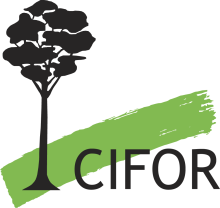Resource information
Data from damar agroforest and hill dipterocarp forest sites suggest that income alone is inadequate for explaining why people conserve a non-timber forest product. The explanatory value of several cash income-based indicators was tested and the results showed that these indicators provide only a partial explanation of people's conservation behaviour. Instead, an understanding based on how the income potentially drives a conservation action, expectations about the role of the income in the household economy, and social values, capacities and institutions provides a more complete picture of how economic incentives affect people's harvesting behaviour. We found that an income source was more likely to be valued in the future to the extent that (1) the income from the product provided a source of food security rather than supplemental income; (2) the income from the product was used for specific purposes not easily substituted by other sources of cash; (3) there were not other cash sources available; (4) the income from the product was stable and low risk; and (5) there was an identity, value or status associated with maintaining the income from that product. We conclude that the single most important related policy intervention to achieve conservation is to provide the stability of conditions that enables people to expect the income source to be important in the future.



